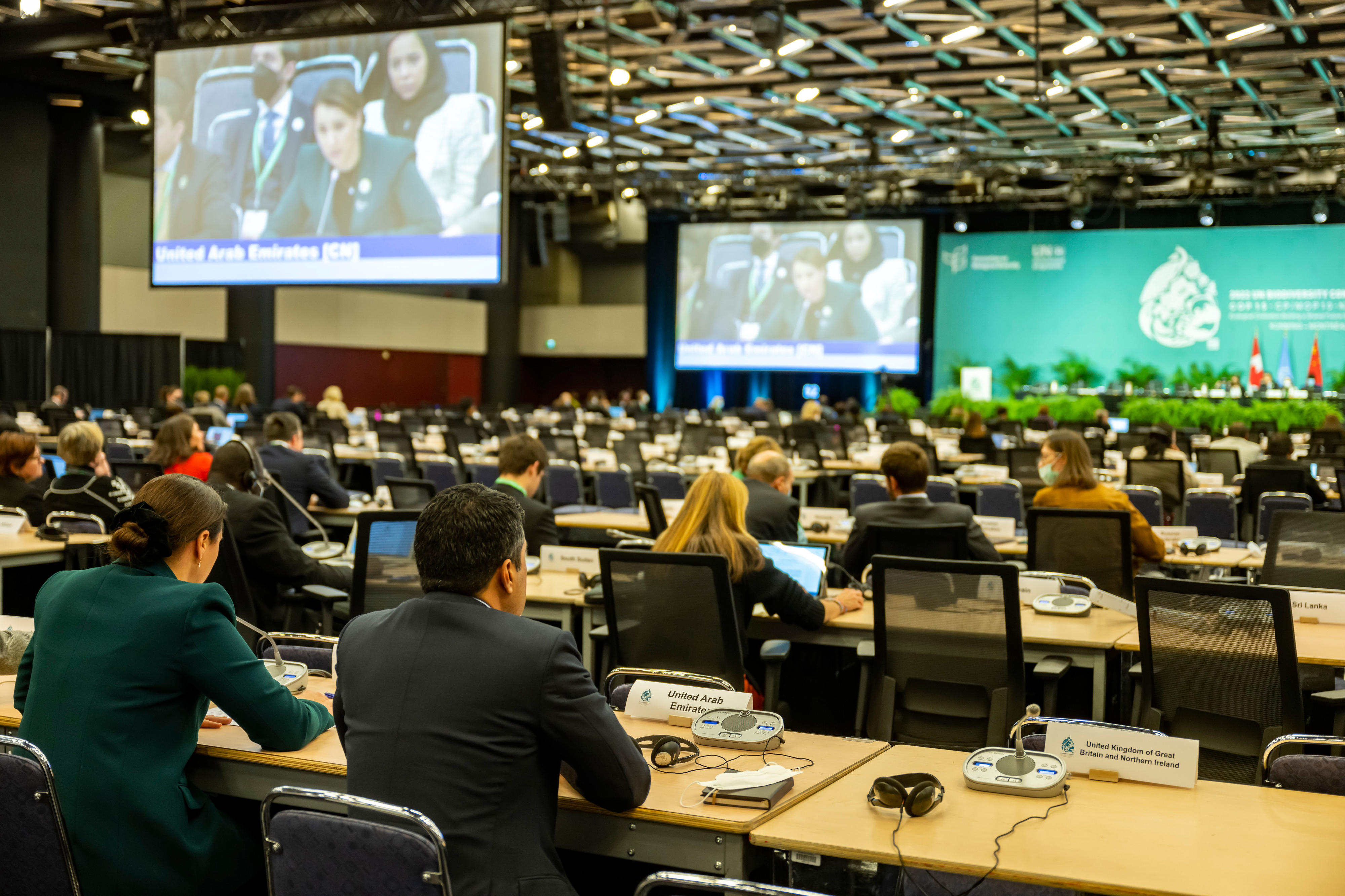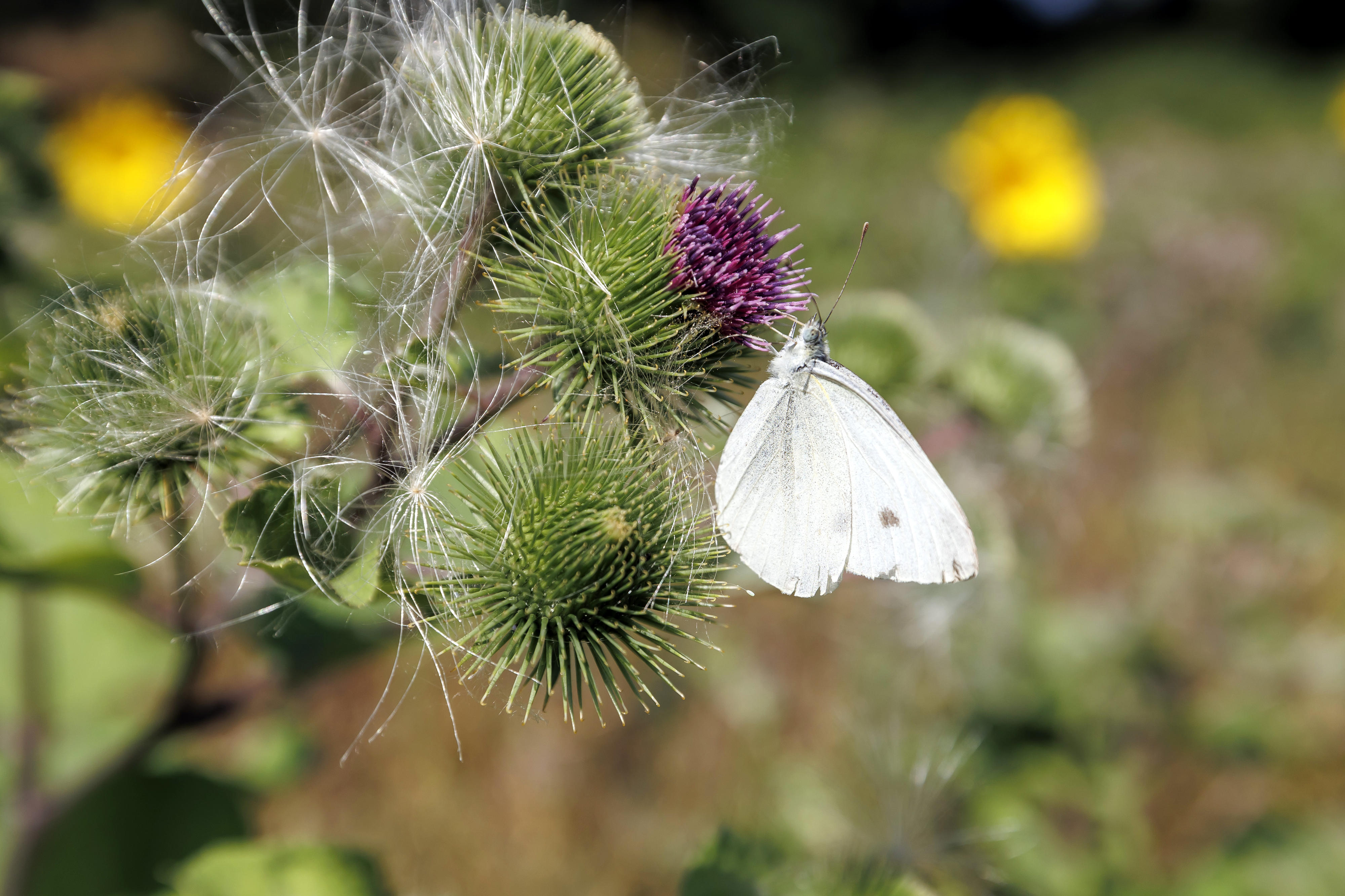Plenary session at COP15 in Montreal
Copyright© UN Biodiversity, via flickr, CC BY 2.0
UN Biodiversity Conference (COP15) Germany and Colombia launch implementation initiative
Joint press release of BMZ and BMUV, 17 December 2022 | Together with Colombia and other countries, Germany has launched an initiative at the United Nations Biodiversity Conference (CBD COP15) in Montreal, to support developing countries in the swift implementation of their biodiversity strategies and action plans (NBSAPs), adapted in line with the targets agreed in the new global biodiversity framework. The German government has pledged a total of 29 million euros for the new NBSAP Accelerator Partnership. Colombia and Germany have thus created a new implementation instrument for global biodiversity conservation which will directly contribute to raising the level of ambition.
Federal Environment Minister Steffi Lemke commented: “We need to reverse the trend in biodiversity loss and worldwide species extinction once and for all. Time is running out. The NBSAP Accelerator Partnership launched today will enable us to start implementing the new global biodiversity framework as soon as it has been adopted. This is a vital investment in our common future and for preserving our foundations of life. We want to establish a genuine partnership in which all stakeholders are involved and take responsibility.”
In Montreal, the international community want to agree on ambitious conservation targets for biodiversity and on corresponding verification and implementation mechanisms. Governments must then implement these goals in national policies and strategies. The NBSAP Accelerator Partnership is jointly led by developing and industrialised countries. The Partnership aims firstly to promote mutual assistance between national governments in revising, implementing, monitoring and reviewing ambitious, high-quality NBSAPs and to support countries in effectively combating direct and indirect causes of biodiversity loss. Secondly, the partnership will integrate other complementary initiatives, and so harness specific expertise that can give countries targeted support.
Germany will provide seed funding of 29 million euros for the NBSAP Accelerator Partnership. The Federal Ministry for the Environment, Nature Conservation, Nuclear Safety and Consumer Protection will contribute 20 million euros for establishing the partnership’s global architecture, match-making mechanism, indicator reporting and monitoring and for direct capacity building on the ground. The Federal Development Ministry will fund support packages in selected countries with a further nine million euros. This support will focus on the implementation of updated national biodiversity strategies, on knowledge transfer and South-South exchange. It will ensure that indigenous peoples and local communities are involved.
Link to International Climate Initiative (IKI):
https://www.international-climate-initiative.com/en (External link)
Background on NBSAPs on the United Nations Convention on Biological Diversity website:
https://www.cbd.int/nbsap (External link)

